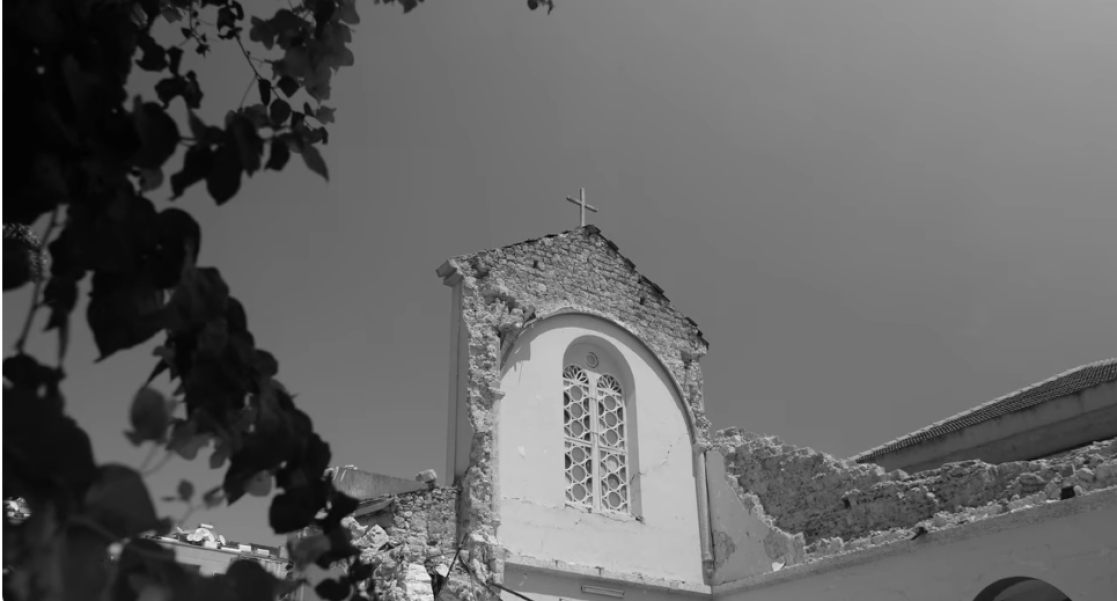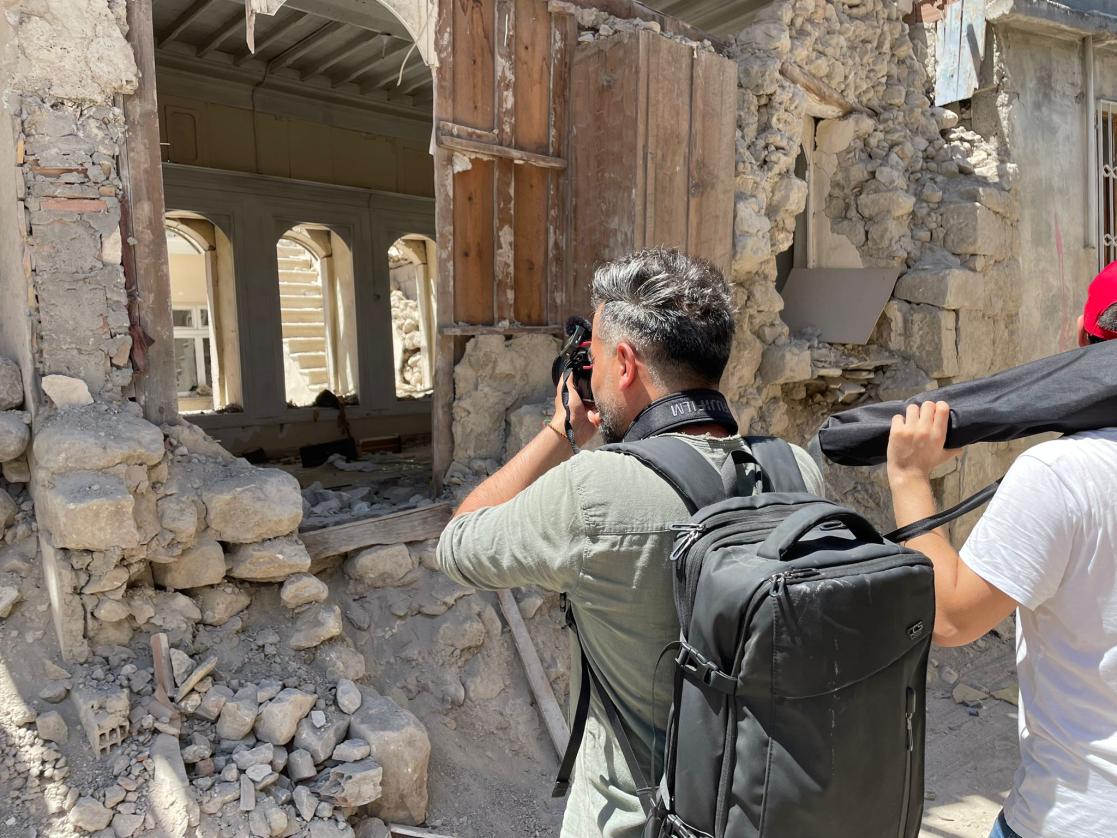In Pursuit of Memory: EU-funded Documentary Offers Road Map for Hatay after Earthquakes

The European Union (EU) funded documentary “Houses, Faces, Stones” begins with this quote from Italian philosopher Giorgio Agamben. Directed by Mustafa Orman, the film tells the story of a city that lost its colours in the February 2023 earthquakes, Hatay (Antakya), through black and white images: destroyed buildings, deserted streets, tents lined up one after the other, bulldozers and dust.

DELEGATION OF THE EUROPEAN UNION TO TÜRKIYE
Mountains of rubble in Hatay
“During the day, it is impossible to see anything in the city except the rush and hustle of people trying to save their property with demolition teams,” says a man describing the city as it is today in the film.
It’s a film of nostalgia. A middle-aged man in the film wants the earthquakes and the destruction they’ve brought to be only a dream. He sounds tired and sad. This is the mood of almost everyone in Hatay. Another man in the film explains why in one sentence: “Antakya was everything to us.”
What can people from Hatay do?
So what can people from Hatay, who have suffered great losses, do to regain “everything”? The director who pursues this question reflects: “One year before the earthquake, I had travelled to Hatay and loved it very much. I decided to make this film when I saw the destroyed state of the city after the earthquake. We set out from the fact that Antakya is the meeting point of religions.
We talked to people from Antakya, including representatives of Alevi, Armenian, Greek and Assyrian communities about how the city can be revitalised and how the cultural life in the city, including food culture, can be maintained. Because the revitalisation of a city is not only about building buildings, the main thing is to maintain the culture there.”
An old woman in the film confirms this: “It is the bazaar that will revitalise Antakya, not the shopping malls.” She is referring to the city’s historic Long Bazaar and its shopping culture.

DELEGATION OF THE EUROPEAN UNION TO TÜRKIYE
Deserted streets through the director’s eyes
The film draws attention to the importance of protecting the city’s multicultural structure, common memory and urban identity and calls on the people from Hatay to restore the old colours and joy to the city with a common mind, to follow Agamben’s words and live as they did before the earthquake. According to the director, this is the only way to preserve Hatay’s daily life habits, culture and identity.
This is precisely why, despite showing a destroyed city, one of the dominant emotions of the film is hope. Those who left Hatay after the earthquake hope to return, while those who stayed hope to get Hatay back on its feet. Some wait for the day when they will see the crowds of Long Bazaar again, some wait for their school to be repaired.
“God willing, I will come to the church again,” says an old woman in front of the ruins. There’s hope in her voice.

DELEGATION OF THE EUROPEAN UNION TO TÜRKIYE
A collapsed church in Hatay
Over 67,000 heavily damaged buildings
Thousands of people were killed and tens of thousands injured in the February earthquakes in Hatay. Approximately 15,000 buildings collapsed, over 8,000 buildings were in need of urgent demolition and over 67,000 heavily damaged buildings were identified. According to Hatay Metropolitan Municipality Mayor Lütfü Savaş, about 500,000 people left Hatay. Mayor Savaş said: “All the dynamics of Hatay should come together, and Hatay should stand up stronger than before.”

DELEGATION OF THE EUROPEAN UNION TO TÜRKIYE
Director Mustafa Orman decided to make the film when he saw the destroyed city after the earthquake
Filming lasted 25 days
Mustafa Orman’s 45-minute documentary film, produced within the scope of the EU Sivil Düşün Programme Gayret special support, took 25 days to shoot. Although the film has not yet been released, Orman plans to organise a special screening in Hatay.

Delegation of the European Union to Türkiye
What is Sivil Düşün?
Sivil Düşün is a European Union programme that supports the rights-based projects of civil society organisations and activists throughout Türkiye. The programme provides in-kind support and expertise for small-scale, short-term and rights-based initiatives. With the hope given by the efforts of civil society in the post-earthquake recovery process, the programme aimed to contribute to sustainable recovery, and Gayret announced its special support.

Delegation of the European Union to Türkiye
Click here to watch the trailer of the documentary “Houses, Faces, Stones”.





